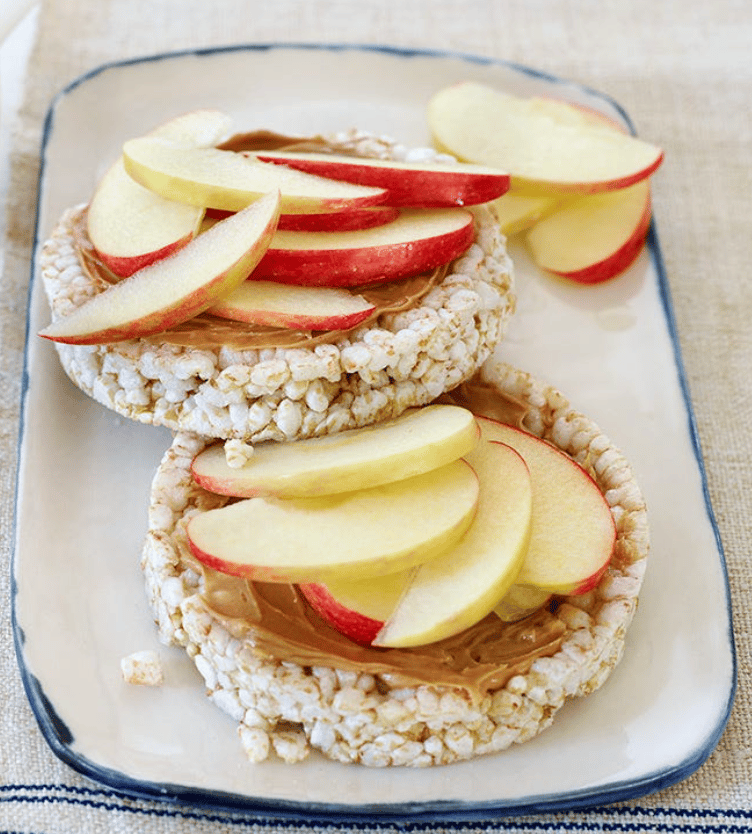- More Relief. Less Medication.
- Posts
- 🧠 How This Hidden Cellular Process Triggers Your Migraine Attacks...
🧠 How This Hidden Cellular Process Triggers Your Migraine Attacks...
The powerhouse of your cells doesn't just produce energy... It does A LOT more than we've been led to believe!

Your hub for natural migraine management. More Relief. Less Medication.

Hey Migraine Mentees 👋
Today’s newsletter takes 5 minutes and 12 seconds to read, but if you’ve only got 60 seconds, here’s what you need to know:
Your mitochondria produce ATP, the energy currency of your cells.
Mitochondrial health is foundational for healing and optimal cellular function.
We used to think the mitochondria only produce ATP, but we now know they regulate inflammation, immune function, and cellular healing.
Unsurprisingly, when your mitochondria are impaired or no longer functioning at a high level, symptoms and chronic diseases can manifest.
Your mitochondria are always changing, growing, and evolving, which means that you can too!
🔬 All of the leading researchers, biohackers, professional athletes, and performance enhancement guru’s are focused on finding ways to optimize mitochondrial health…
In today’s newsletter, we’re going to show you how to optimize your mitochondria to improve your life and overcome your migraine symptoms.
🧠 The Migraine Mentors
First time reading?! Sign up HERE.

In This Week’s Edition…
🥡 Weekly Take-Out
Meme of The Week - 🎼 “Hello Aura My Old Friend… I’ve Come To Talk To You Again…”
📸 Weekly TikToks
How Histamine Affects Migraine Symptoms
Are Migraines Vascular or Neurologic?
🔈️ The Migraine Mentors Minicast - Podcast Series
Why Improving Mitochondrial Heath Will Improve Migraine Symptoms
📜 This Week’s Top Article
The Hidden Link Between Mitochondria and Migraine Attacks
🍴 Migraine-Friendly Recipe of the Week
Rice Cakes w/Nut Butter

🥡 WEEKLY TAKE-OUT
Meme of The Week


🥡 WEEKLY TIKTOKS
How Histamine Affects Migraine Symptoms
@headache_whisperer #migraine #migraines #migrainerelief #headache
Are Migraines Vascular or Neurologic?
@drerikreis #migraines #MigraineRelief #migraineawareness #MigraineResearch #migraine #chronicinflammation #chronicillness #neurology #vestibularmigra... See more

🗞️ MIGRAINE MINICAST
Why Improving Mitochondrial Heath Will Improve Migraine Symptoms
Mitochondria might be tiny, but their role in migraine is enormous.
When these cellular powerhouses struggle, your brain pays the price… And migraine symptoms are sure to follow it.
🎧 In this week’s episode, we dive deep into the mitochondrial connection to migraine, examining how impaired energy production fuels migraine attacks, why mitochondrial dysfunction is increasingly recognized as a core issue in chronic migraine, and how optimizing mitochondria could unlock much needed relief.
We'll also explore practical strategies—including dietary changes, targeted supplements, and lifestyle modifications—to boost mitochondrial function and potentially transform migraine management…
👇️ Click the link below to check it out! 👇️

📜 TOP ARTICLE
The Hidden Link Between Mitochondria and Migraine Attacks
As someone who experiences migraine attacks, you’ve probably tried tracking triggers like stress, sleep, and diet…
But what if the real issue lies deep inside your cells—in the tiny energy factories known as mitochondria?
New research is uncovering that migraine attacks aren’t just a brain problem—they’re linked to energy production, inflammation, immune function, and even accelerated aging.
And when mitochondria become dysfunctional, your body and brain struggle to keep up, leading to fatigue, pain, and increased sensitivity to triggers… With the final act being the onset of a migraine attack.
If you’ve never been educated about the mitochondria, it’s time to go back to school…
🚥 The Mitochondria-Migraine Connection - More Than Just Energy
Mitochondria are often called the powerhouses of the cell because they produce ATP, the cellular currency used to produce energy your body and brain need to function…
But mitochondria do much more than just generate energy—they also regulate:
✅ Inflammation – Mitochondria control inflammatory signals that can trigger migraine attacks and underlying inflammatory responses.
✅ Accelerated Aging & Cellular Health – Mitochondria impact how fast cells break down and regenerate, affecting the aging process and inherently, the health of the cell.
✅ Immune Function – They help regulate the immune system’s response, preventing excessive inflammation that may contribute to migraine symptoms and other underlying health issues.
When mitochondria don’t work properly, energy levels drop, inflammation rises, and the immune system becomes overactive—all of which are linked to migraine attacks and prolonged symptoms.
🧬 Scientific Evidence Linking Mitochondrial Dysfunction to Migraine Attacks
Studies have found clear links between mitochondrial problems and migraines:
Altered Energy Production in the Body and Brain – People with migraine attacks show altered ATP production, meaning their body and brain cells don’t have enough energy to function properly.
Higher Levels of Inflammation – Excessive inflammatory signals (like TNF-α and IL-6) are often found in people with migraines, and mitochondrial dysfunction plays a role in triggering these signals.
Immune System Over-Activation – The immune system can see mitochondrial damage as a sign of danger, triggering an immune response that may increase migraine frequency and impair cellular healing.
Faster Cellular Aging – Mitochondrial dysfunction speeds up oxidative stress and damage, both of which are linked to migraine and neurodegeneration.
🏃 How to Improve Mitochondrial Function to Reduce Migraine Symptoms
Ok…Enough about the bad!
Let’s talk about what you can do to update your brain’s software…
Of course, there are multiple ways to support your mitochondria, which in turn can reduce your migraine frequency and severity—while also improving your energy levels, immune function, and brain health.
Here’s the rundown:
💊 Take Mitochondria-Supporting Nutrients
Certain vitamins and nutrients can enhance mitochondrial function and reduce migraine attacks:
🔹 Coenzyme Q10 (CoQ10): Supports ATP production and reduces oxidative stress linked to migraines.
🔹 Magnesium: A key mineral for mitochondrial energy production. As we’ve previously discussed, low magnesium is common in people with migraine attacks, and supplementing has been shown to reduce attacks.
🔹 Riboflavin (Vitamin B2): Boosts mitochondrial energy efficiency and reduces migraine severity. We usually suggest taking all of the methylated B-Vitamins to support healthy cellular function in general.
🔹 Alpha-Lipoic Acid (ALA): A powerful antioxidant that protects mitochondria from inflammation and aging-related damage.
🥗 Eat an Anti-Inflammatory, Mitochondria-Friendly Diet
Your mitochondria thrive when you avoid inflammatory foods and focus on nutrient-dense options. Try:
✅ Healthy Fats – Olive oil, coconut oil, ghee, wild-caught fish (omega-3s), nuts
✅ Antioxidant-Rich Foods – Berries, dark leafy greens, turmeric, green tea
✅ High-Quality Protein – Grass-fed meats, chicken, eggs, fish, legumes
❌ Avoid Processed Sugars & Refined Carbs – These create oxidative stress and mitochondrial damage
🏋️ Lifestyle Strategies to Boost Mitochondria & Reduce Migraines
🔸 Intermittent Fasting: Helps clear out damaged mitochondria and stimulates energy-efficient new ones (via a process called mitophagy).
🔸 Cold Exposure (Ice Baths, Cold Showers): Activates mitochondrial function, cold-shock proteins, and can lower inflammation.
🔸 Red Light Therapy: Enhances ATP production in mitochondria.
🔸 Exercise (Even Gentle Movement!): Walking, yoga, or light strength training stimulates “mitochondrial biogenesis”, meaning your body creates more energy-efficient mitochondria.
🧠 Reduce Oxidative Stress & Aging Effects on Your Brain
Since mitochondrial dysfunction accelerates cellular aging, reducing oxidative stress is key for long-term migraine relief.
💡 You’ll never go wrong with these simple habits:
✅ Prioritize sleep – Deep sleep is when your mitochondria repair themselves.
✅ Use blue light blockers at night – Protects mitochondria in your brain from light-induced stress.
✅ Manage stress with mindfulness or breath work – Chronic stress depletes mitochondrial function.
🤍 Make Your Mitochondria Are Your Friend, Not Your Enemy
Your mitochondria are always responding to the world around and inside you, so if you’re intentional with optimizing your mitochondrial health, you will see the benefits…
It just takes intention to form healthy habits and stay consistent with your actions.
By supporting your mitochondria through diet, supplements, and lifestyle changes, you can reduce migraine attacks while also boosting your overall energy, brain health, and resilience.
Still looking for answers?
👉️ Click the button below to speak to one of us!

🍴MIGRAINE-FRIENDLY RECIPE
Rice Cakes w/ Nut Butter

🥣 Ingredients
Rice cakes (plain, preferably gluten-free)
Nut butter (almond butter or sunflower seed butter)
Banana slices (or other low-histamine fruits)
Honey (optional, depending on tolerance)
📖 Instructions
Prepare Rice Cakes: Start with plain rice cakes as your base. Ensure they are gluten-free and free from additives or preservatives to avoid potential migraine triggers.
Spread Nut Butter: Take your choice of nut butter (almond or sunflower seed) and spread a generous layer on top of each rice cake. Nut butter should be free of added sugars or oils to maximize benefits.
Add Banana Slices: Slice a fresh banana and layer the slices on top of the nut butter. You can also substitute with other low-histamine fruits like blueberries or sliced apples if desired.
Drizzle with Honey: If tolerated and if you prefer a touch of sweetness, drizzle a little honey on top of the banana slices.
Serve & Enjoy: Your rice cakes with nut butter are ready to be enjoyed as a snack or light meal!
💪 Why This Recipe is Migraine-Friendly, Histamine-Friendly, and Low Glycemic
Avoids Common Triggers
This recipe avoids common migraine triggers such as aged cheeses, processed meats, and artificial additives. Nut butter, bananas, and plain rice cakes are considered lower in potential migraine triggers.
Whole Ingredients
The use of whole, unprocessed ingredients reduces the risk of hidden triggers often found in packaged foods.
Fresh Ingredients
The recipe emphasizes fresh foods and avoids ingredients high in histamines. Almond butter and sunflower seed butter (without additives) are generally tolerated by those with histamine sensitivity.
No Aged Products
Unlike aged dairy products that are high in histamines, this recipe uses fresh components that are less likely to trigger histamine reactions.
Low Glycemic Index (GI) Foods
Rice cakes made from brown rice are considered to have a moderate glycemic index, especially compared to traditional breads which may spike blood sugar levels more. When paired with healthy fats from nut butter, the overall glycemic impact is further reduced.
Nutritional Balance
The combination of carbs from rice cakes and fiber, protein, and fat from nut butter and fruits provides sustained energy instead of rapid spikes in blood sugar. This helps in maintaining stable energy levels and managing cravings.

How did you like this week's email? |